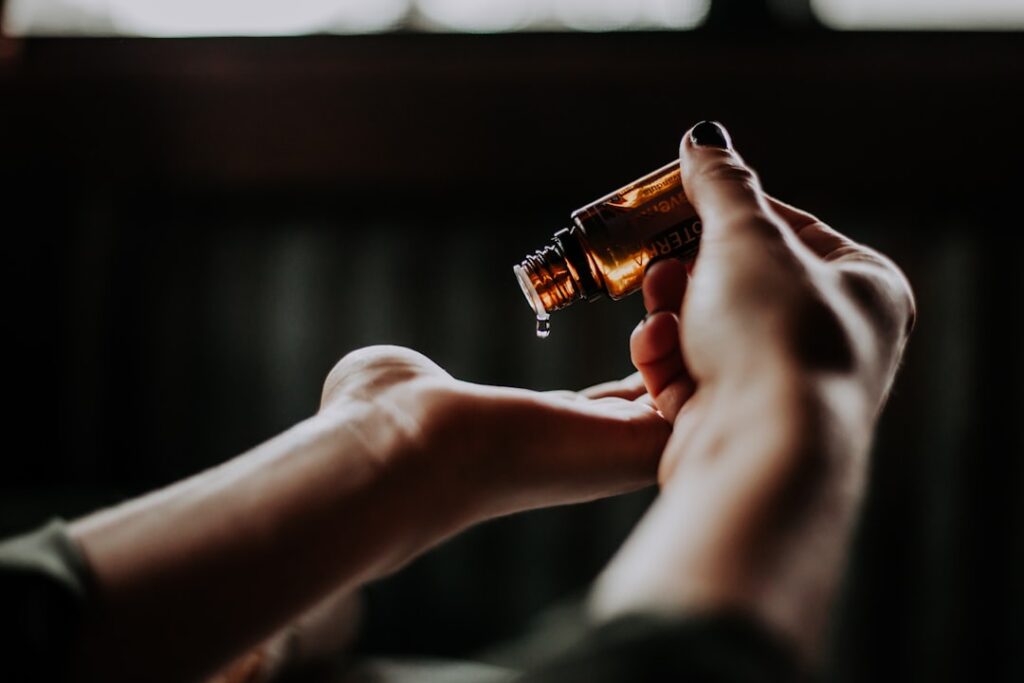Exploring Essential Oils for Eczema & TSW Relief

Essential oils have become quite popular, and while research is still ongoing, many people find them beneficial in managing symptoms.
My Journey with Essential Oils
I began using essential oils seven years ago, and my interest deepened during my journey through topical steroid withdrawal (TSW). Through trial and error, I discovered how these oils could aid in my eczema healing process and enhance my daily life. However, it took me a while to figure out what my skin could tolerate.
Skin Sensitivities
Despite being natural, essential oils can sometimes irritate eczema-prone skin. Therefore, it’s crucial to conduct thorough research and perform patch tests before using them. Consulting with a doctor before trying any new herbal or natural remedy is also advisable.
My Top 5 Essential Oils for Eczema
Below are my top five essential oils that I use regularly. Some are applied directly to the skin (diluted with a carrier oil), while others are used for aromatherapy to relieve stress and improve overall well-being.
- Frankincense
Frankincense is one of my favorites due to its anti-inflammatory properties, which help reduce skin irritation and redness from eczema. I often mix it with lavender oil for evening diffusion. - Lavender
Lavender oil has antifungal and antibacterial properties, making it beneficial for alleviating eczema symptoms. Its calming and soothing nature helps manage stress, a major trigger for eczema. I enjoy diffusing lavender oil in the evenings to help wind down before bed. - Tea Tree Oil
Tea tree oil is popular in skincare for its antibacterial and anti-inflammatory properties. While there is limited conclusive research on its effects on atopic dermatitis, its antimicrobial nature can help prevent or control infections. - Chamomile
Chamomile, known for its anti-microbial and calming properties, helps with skin irritation and redness. In addition to using the essential oil, I love drinking chamomile tea for its overall soothing effects. - Helichrysum
Helichrysum oil, with its antiseptic and antimicrobial properties, is beneficial for itchiness and has been shown to inhibit the growth of staphylococcus on the skin. This makes it especially useful for those with eczema who are prone to infections.
Using Carrier Oils
Essential oils should always be diluted in a carrier oil when applied to the skin. While coconut oil is a common one, it can be irritating for some. I prefer using olive oil or jojoba oil.
Caution with Essential Oils
It’s so important to be cautious with sensitive eczema skin. Conduct thorough research, consult with your doctor, and perform patch tests to determine what works best for you. The oils listed above are my personal favorites, but they might not be suitable for everyone.
Remember, each person is unique, and finding what benefits you most involves taking control of your health and listening to your body’s needs.
